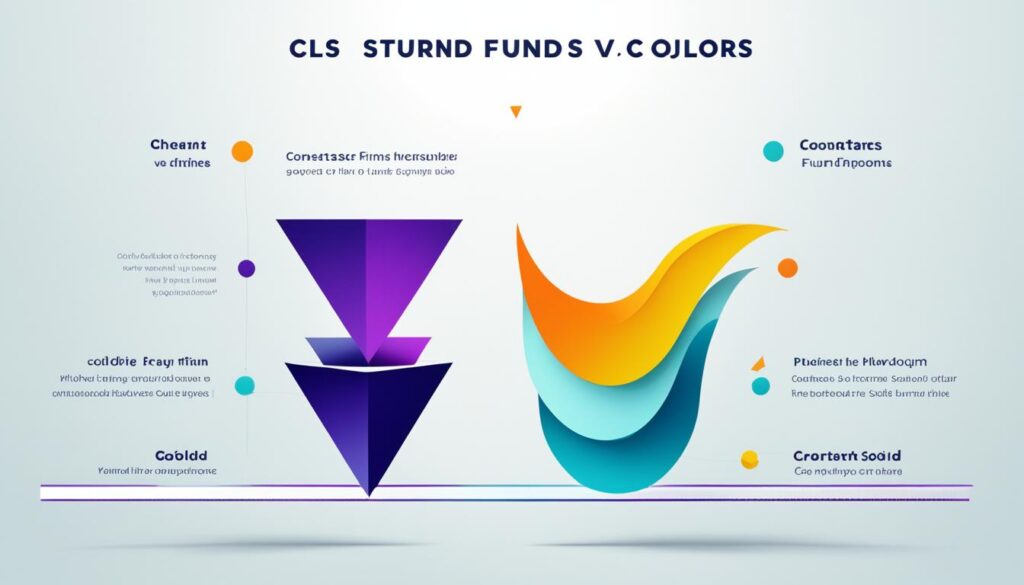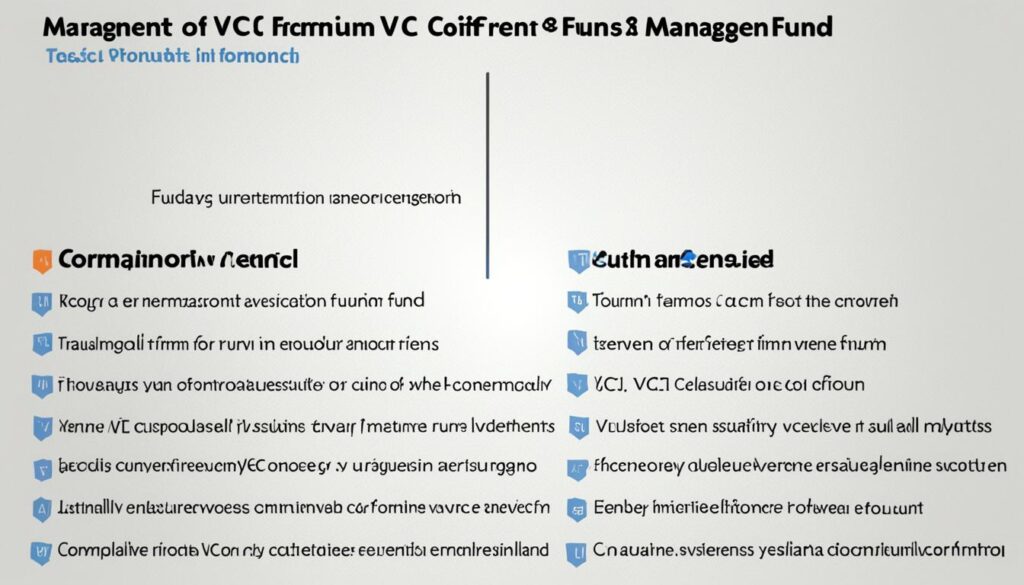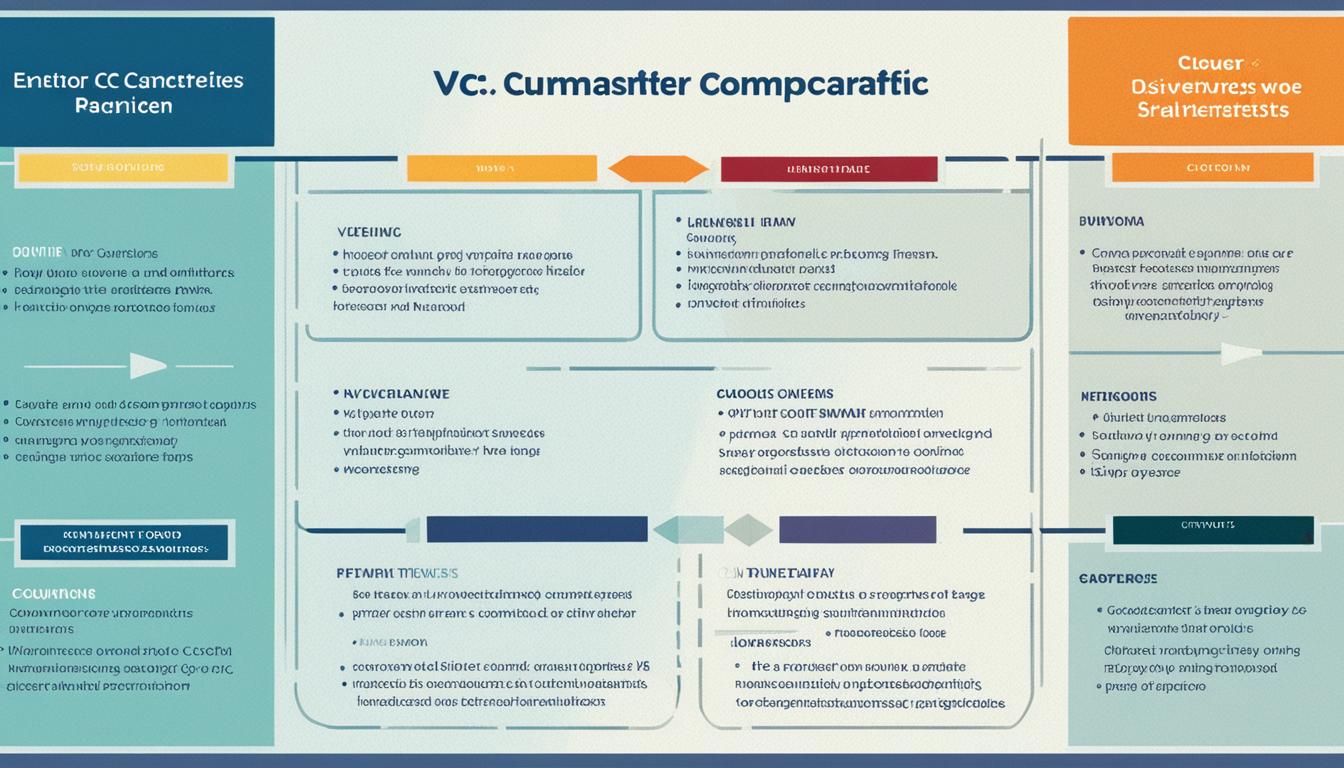In the dynamic world of venture capital, it’s common to hear the terms “VC firm” and “VC fund” used interchangeably, but do you know the crucial distinction between the two? Understanding this difference is crucial for anyone interested in the startup ecosystem and the flow of investment capital. Let’s dive in and explore the nuances that set these two entities apart.
A venture capital firm (VC firm or venture firm) is a collection of legal entities formed for the purpose of generating substantial returns for its investors by investing in high-risk companies that have yet to prove their business models are sustainable in the marketplace. On the other hand, a venture capital fund (or venture fund) is a legal entity, created by—but separate from—a VC firm, that pools money from outside investors and directs those investments to companies seeking capital. While VC firms and VC funds are interconnected, they are not one and the same.
Key Takeaways
- A venture capital firm is the overarching legal entity that manages and oversees multiple venture capital funds.
- A venture capital fund is a specific investment vehicle, created by a VC firm, that pools money from outside investors to invest in startups and high-risk companies.
- VC firms and VC funds have distinct legal structures and roles, with VC firms acting as the general partner and managing the fund, while VC funds are the investment vehicles.
- Understanding the difference between VC firms and VC funds is crucial for entrepreneurs and investors navigating the venture capital landscape.
- The choice of legal structure can have significant implications for the VC firm’s operations, investment strategies, and relationships with its investors.
Defining Venture Capital Firms and Funds
Venture capital is a dynamic and influential force in the business world, shaping the trajectories of innovative startups and fueling economic growth. At the heart of this ecosystem are two distinct entities: venture capital firms and venture capital funds. Understanding the nuances between these two is crucial for entrepreneurs, investors, and industry observers alike.
What is a Venture Capital Firm?
A venture capital firm (VC firm or venture firm) is a collection of legal entities formed with the primary objective of generating substantial returns for its investors. These firms specialize in identifying and investing in high-risk companies that have yet to prove the viability and sustainability of their business models. VC firms serve as the perpetual legal entities under which individual venture capital funds can be raised and closed over time, allowing them to maintain a long-term investment strategy.
What is a Venture Capital Fund?
A venture capital fund (or VC fund) is a distinct legal entity, created by and separate from a VC firm, that pools money from outside investors and directs those investments to companies seeking capital. Venture capital funds are typically structured as partnerships, with the VC firm acting as the general partner (GP) and managing the fund, while the limited partners (LPs) are the outside investors providing the capital.
| Venture Capital Firm | Venture Capital Fund |
|---|---|
| A collection of legal entities formed to generate returns for investors | A legal entity created by a VC firm to pool investor capital for investments |
| The perpetual organization under which multiple VC funds can be raised | A specific investment vehicle managed by a VC firm |
| Invests in high-risk, unproven startups to generate substantial returns | Pools money from outside investors to fund investments in startups |
| The VC firm is the general partner (GP) managing the fund | The limited partners (LPs) are the outside investors providing capital |
By understanding the distinction between venture capital firms and venture capital funds, entrepreneurs and investors can navigate the complex world of venture capital more effectively, aligning their goals and strategies with the appropriate entities within this dynamic ecosystem.

Confusion Between VC Firms and Funds
It’s important to understand that venture capital firms and venture capital funds are not the same thing. A VC firm is the overarching legal entity that can raise and manage multiple VC funds over time. For instance, the venture firm Homebrew has raised several funds, such as “Homebrew Fund II.” So the VC firm is the broader organization, while the VC fund is a specific investment vehicle operated by the firm.
Venture Capital Firms vs Funds
The key distinction is that a VC firm is the perpetual legal entity, while a VC fund is a separate investment pool created and managed by the firm. VC firms can raise and close multiple funds, each with their own investment strategies and portfolios. This allows the firm to deploy capital and manage investments across different market conditions and opportunities.
Venture Capital Firms vs Institutional Investors
Another point of confusion is the relationship between VC firms and institutional investors. While both make investments from pooled resources, institutional investors like pension funds and endowments typically act as intermediaries, rather than investing directly in companies. In fact, many institutional investors become limited partners in VC firms, providing the capital for the firm’s funds.
So in summary, VC firms and VC funds are distinct but complementary components of the venture capital ecosystem. Firms provide the organizational structure and management, while funds are the specific investment vehicles used to back promising startups. Understanding this nuance is key to navigating the world of venture capital.

Key Distinctions Between VC Firms and Funds
When exploring the key differences between VC firms and VC funds, it’s essential to understand the distinct roles they play in the venture capital ecosystem. While VC firms and funds are often used interchangeably, they are not the same entity.
A venture capital firm is the overarching organization that manages multiple VC funds over time. It is the perpetual legal entity that raises and closes these individual investment vehicles. In contrast, a venture capital fund is a specific fund created by a VC firm to pool capital from investors and direct it towards promising startups and high-growth companies.
| Venture Capital Firm | Venture Capital Fund |
|---|---|
| Perpetual legal entity that manages multiple VC funds | Specific investment vehicle created and managed by a VC firm |
| Raises and closes individual VC funds over time | Pools capital from investors to invest in startups and high-growth companies |
| Employs investment professionals to evaluate and select portfolio companies | Provides the capital that the VC firm uses to make investments |
| Earns management fees and carried interest from the VC funds it manages | Investors receive returns from the VC firm’s successful investments |
Understanding these key distinctions between VC firms and VC funds is crucial for entrepreneurs, investors, and others seeking to navigate the venture capital landscape effectively.

Types of Venture Capital Firms
When it comes to venture capital firms, one key distinction lies in the approach they take to identifying and investing in promising companies. According to industry experts, there are several distinct types of VC firms, each with its own unique focus and investment thesis.
Generalist VC Firms
Generalist venture capital firms are those that invest in companies across a wide range of sectors and industries. These firms typically have a broad mandate, looking for the most promising opportunities regardless of the specific market or business model. Generalist VC firms are often well-suited to identifying transformative technologies or innovative business models that could disrupt multiple industries.
Thematic VC Firms
In contrast, thematic VC firms take a more focused approach, investing in companies that operate within particular sectors or work on specific types of problems. Examples of thematic VC firms include Psilos (healthcare), The Water Council (clean water), Kapor Capital (tech serving underrepresented communities), and Backstage Capital (underrepresented founders). These firms build deep expertise in their chosen domains, allowing them to identify promising opportunities and support their portfolio companies more effectively.
Thesis-Driven VC Firms
At the most focused end of the spectrum are thesis-driven VC firms, which invest only in companies that fit a specific hypothesis about the future of a particular market or technology. An example is Union Square Ventures, whose investment thesis as of 2018 was “USV backs trusted brands that broaden access to knowledge, capital, and well-being by leveraging networks, platforms, and protocols.” These firms have a clearly articulated vision for where a sector is headed and seek to back the companies best positioned to capitalize on that vision.

What is the difference between a VC firm and a VC fund?
While the terms “VC firm” and “VC fund” are often used interchangeably, it’s important to understand the key distinctions between the two. A venture capital firm is a legal entity created for the purpose of generating substantial returns by investing in high-risk companies. On the other hand, a venture capital fund is a separate legal entity from the VC firm, which pools money from investors to direct investments to these companies.
One of the primary differences is that a VC firm is a perpetual legal entity, while a VC fund is typically raised and closed over time under the umbrella of the VC firm. Venture capital firms can manage multiple funds, each with its own investment strategy and focus, such as early-stage, mid-stage, or late-stage investments.
| Key Difference | Venture Capital Firm | Venture Capital Fund |
|---|---|---|
| Legal Structure | Perpetual legal entity | Separate legal entity from the VC firm, raised and closed over time |
| Investment Focus | Can manage multiple funds with different investment strategies | Focused on a specific investment strategy and stage of business maturity |
| Funding Source | Raises capital from institutional and individual investors to deploy across its funds | Pools money from investors (limited partners) to direct investments to companies |
Understanding the difference between a VC firm and a VC fund is crucial when seeking investment or partnering with venture capitalists. While they are closely related, they are distinct entities with their own unique characteristics and investment dynamics.

Roles in a VC Firm
Within venture capital firms, there are several key roles that play pivotal parts in the investment process and management of the firm. Understanding these roles can provide valuable insights into the inner workings of the VC industry.
Managing Directors and General Partners
According to the first source, individuals with the titles of managing directors (MDs) and general partners (GPs) are almost always the ones who make the final decisions on investments and sit on the boards of portfolio companies at VC firms. The GP title carries formal legal liability, while an MD title does not. Many firms use the title “partner” instead of the legal distinction around the GP title.
Partners
The “partner” title has a lot of variability at VC firms, as explained in the first source. In some firms, the partners are the most senior employees who have the authority to write investment checks unilaterally. In other firms, all employees are referred to as “partners” regardless of their decision-making authority.
Associates and Analysts
The third source outlines the typical roles within a VC firm, which include associates and analysts. These individuals often support the managing directors, general partners, and partners in conducting due diligence, researching investment opportunities, and providing recommendations, though they may not have the final say on investment decisions.

Legal Structures of VC Funds
The backbone of most venture capital funds is a legal structure known as a limited partnership. This entity is comprised of at least one general partner (GP) who manages the partnership, and one or more limited partners (LPs) who provide the investment capital.
Limited Partnerships
In a limited partnership, the general partner has unlimited liability for the partnership’s business operations, while the limited partners have limited liability and serve as passive investors. This legal structure allows venture capital funds to benefit from pass-through taxation, where partners pay taxes individually on proceeds received from the business.
General Partners
The general partner in a venture capital fund is typically a legal entity established and run by the people employed by the VC firm. As the GP, this entity has the responsibility of managing the fund’s investments and operations, with the associated unlimited liability.
Limited Partners
The limited partners in a VC fund are the investors who provide the capital. These LPs can be individuals or institutional investors such as pension funds, endowments, insurance companies, and sovereign wealth funds. Limited partners have limited liability in the partnership and serve as passive investors.

Fund Formation and Management
The terms governing a VC fund are meticulously outlined in a limited partnership agreement (LPA). The LPA serves as the foundation, outlining the rules for partner admission and removal, the rights and activities of each partner, the process for capital contributions, the distribution of investment proceeds, and the voting mechanisms. Crucially, the LPA supersedes any default state laws that would otherwise apply to the partnership.
Limited Partnership Agreements
The limited partnership agreement (LPA) is the comprehensive document that defines the governance and operations of a VC fund. It covers a wide range of essential elements, such as how partners are admitted or removed, the specific rights and responsibilities of each partner, the procedures for making capital contributions, the distribution of investment returns, and the voting protocols to be followed. Importantly, the LPA takes precedence over any default state laws that would typically apply to the partnership structure.
Limited Liability Companies
While VC funds are commonly structured as limited partnerships, the venture capital firms themselves are often organized as limited liability companies (LLCs). An LLC is a distinct legal entity that has members instead of partners and can have a single member or multiple members. Similar to a limited partnership, an LLC provides pass-through taxation and limited liability protection for its members, making it an attractive choice for VC firms managing VC fund formation and management.

Why are VC Firms based in Delaware?
According to industry experts, many venture capitalists choose to establish their firms and funds in the state of Delaware. This preference is largely due to Delaware’s robust history of business-related court decisions, which provide greater clarity and specificity on how various business transactions will be interpreted compared to other states. Delaware’s streamlined process for forming legal entities, such as limited partnerships and limited liability companies (LLCs), also makes it an attractive jurisdiction for VC firms.
The state’s renowned Delaware Court of Chancery is particularly well-suited for handling complex business disputes. This specialized court is considered impartial and favorable for resolving issues that may arise within venture capital firms and their portfolio companies. The court’s extensive experience in corporate law and its ability to provide timely rulings make it a reliable choice for VC firms seeking a favorable legal environment.
Additionally, Delaware’s corporate statutes and regulations are intentionally designed to be business-friendly, offering VC firms and their portfolio companies a range of benefits. From the ability to have multiple classes of stock to the potential for tax advantages, Delaware’s legal framework caters to the unique needs of venture capitalists and the startups they invest in. This comprehensive ecosystem makes Delaware an attractive domicile for VC firms seeking to establish their operations and funds.
